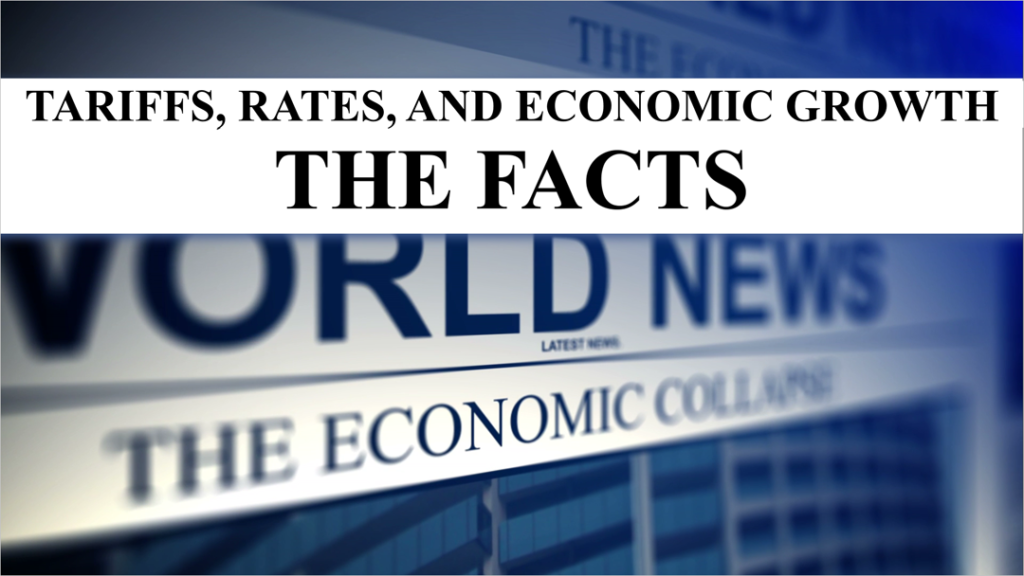Looking for the Key to Financial Freedom in the U.S.? Stop Searching in “Shadow Markets” for Economic Facts

“If we can agree that the recession wasn’t about bubbles but about the organization of knowledge, we can move on to restoring the systems that allowed the global economy to expand more in the last 60 years than in the previous 2,000.” – Hernando de Soto
Recall the metaphor of the man who lost his keys? The story goes more or less like this. A stranger walking along a sidewalk sees a man on the street searching and asks him what he’s looking for? “I lost my keys,” the man replies. The stranger then asks him to trace back his steps and try to recall where he dropped them. The man still searching replies, “On the other side of the street.” The stranger then asks, “Why are you looking for them here and not there? “ Man replies, “Because this is where the light is.”
Seeing what’s transpired since the 2008 financial and economic crises, the ongoing debate of “alternative facts” is not surprising; one has only to look at American history books. In fact, the vast majority of the public grew up surrounded by the “organization of knowledge” or “alternative facts.” Some omissions of facts were deemed necessary to preserve America’s idealistic foundations projecting a country representing liberty, equality, and freedom.
“…Freedom is not static but dynamic; not a vested interest, but a prize continually to be won. The moment man stops and resigns himself, he becomes subject to determinism. He is most enslaved when he thinks he is comfortably settled in freedom.” – Jacques Ellul, The Technological Society. 1964
“Shadow Markets”
Things may differ abroad, but in the U.S. American finance drives American politics. If politics is driven by the finance, then facts or lack thereof, dictate the economy. A Bloomberg Businessweek 2011 paper, “The Destruction of Economic FACTS” by Hernando de Soto with Karen Weise gives an excellent account of the importance of economic facts. De Soto writes:
“The importance of economic facts may not be obvious to Americans. ‘What does the fish know about the water in which it swims?’ asked Albert Einstein? But it’s easy to grasp from the perspective of the developing and former communist countries where I live and work. In these countries, most of our assets and relationships are in the informal sector, outside the legal economy. Because they’re not recorded in public memory systems, they cannot be written up as facts and are, in effect, invisible. All we have are shadow markets.”

The Bank’s Key Role
What do “shadow markets” mean for bank customers? As bank account holders, Americans have a vested interest in getting the facts and comprehending how the financial system operates. Why? To identify banks that have worked the system to their advantage.
Let’s consider three areas of concern: 1. Rating agencies (Moody’s and Standard & Poor’s) are paid by banks to rate stocks (conflict of interest?); 2. Banks are overvaluing portfolios based on current market values; and 3. In banking, the lines are blurred between the responsibility of a fiduciary and a broker. Both sell products to customers. But who has their best interest in mind?
Let’s examine banking from a technological, legal and political perspective:
First, how do rating agencies affect virtual currencies? According to Mercedes K. Tunstall, Consumer Finance Regulatory, Partner at Pillsbury Law, “one of the reasons virtual currencies in the U.S. have actually proliferated and succeeded is because of the strength of our financial system security.” Why the pushback from government and banks? $ – Loss of tax revenue.
According to Sen. Mark Warner (D-VA), politician and businessman, “We’ve got to get this balance right, we want to keep this innovation in America, but as a former Governor the revenue leakage from internet based transactions for states that depend upon sales tax is an enormous challenge.” In other words, we’re all for being the leader in technology as long as we, government and banks, get a piece of the action – $.
Second, consider the recent charges made against Wells Fargo Bank, reportedly profiting from opening “fake accounts.” But, is it legal? De Soto posits “The rule of law is much more than a dull body of norms: It is a huge, thriving information and management system that filters and processes local data until it is transformed into facts organized in a way that allows us to infer if they hang together and make sense.”
It seems banks and corporations’ legal counsel have manipulated the “rule of law” to their advantage to gain the public’s trust. Yet, unlike the monopolistic milieu of cable, communications, and tech corporations, banks are competitive, so far. So, it behooves Americans to leverage that competitive advantage and shop around.
Third, speaking of banks, Rep. Keith Ellison (D-MN) stated, “Just 10 years after big banks crashed the economy Senate Republicans and some Dems want to roll back the rules that we put in place to prevent the next crash… These are banks that got close to $50 Billion in bail out money during the crisis…” Apparently, the $50 Billion was insufficient and the banks could do with a few more bits of coins. If the money game has winners and losers, then who do you think plays with the facts?

Fed’s Power over Politicians and the Public
The Fed’s narrative of a strong U.S. economy refers to a particular set of statistics voiced as facts. But what the Fed does not acknowledge is a narrative voiced by the data that has amassed since the 2008 economic and financial crises: slowing housing market and credit card and student loan debts at a historic high. Ignoring these realities sets a dangerous precedence, whereby debt, not data, will eventually be the making of the next crisis and the topic on every ones’ lips.
Vociferous political partisanship has rendered Congress powerless. Corporations, unlike the public, appear to have done well by the Fed, “While politicians debated, the fed acted. It used its political independence and unlimited power to create money to provide trillions of dollars in loans to corporations of all kinds (TARP- FED Rescue $3.95 Trillion) dwarphing the Congressional aid that followed” according to J. Bruce.
The Fed bailing out the banks is inherently by design becoming standardized. Recall the panic of 1907 set a precedent and served as a catalyst which called for a decentralized banking system to address the crisis. But one must be careful to note that in the grand scheme of things the sum of the parts and a part are not on equal bearing. Consider that “a crisis is a systemic event; it involves the banking system, not this or that bank” according to G. Gorton & A. Metrick’s paper “The Federal Reserve and panic prevention: The roles of financial regulation and lender of last resort” in in The Journal of Economic Perspectives.
The U.S. 2008 crises awakened its citizens forced to face the dark reality that their livelihood depends on corporations working in “shadow markets” facilitated by politicians blinding the public with a large spotlight, rendering them unable to see the FACTS.
“The same phenomenon appeared in the realm of finance under the Third Reich. Hitler’s revolution claimed to have done away with all the classical methods of finance…Rejection of inflation, short-term financing, refusal to use currency for financing-all these were traditional principles of financial technique. The financial machinery of the Third Reich was nearly identical with that of the Empire in 1914. . . . In essence, the Nazis turned from technically untenable inventions back to an efficient financial technique, a technique identical with the one that dominated in the capitalistic countries and in the Soviet Union…” – Jacques Ellul, The Technological Society. 1964
